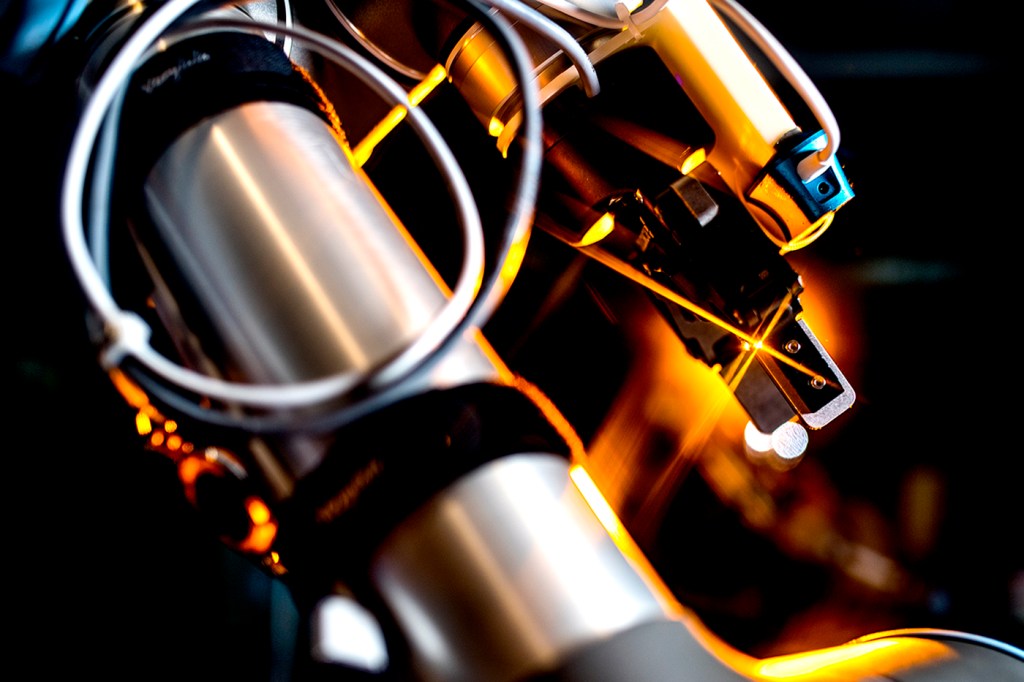Maine businesses urged to adopt Industry 4.0: Northeastern study highlights critical need for data-driven transformation
“These technologies can enhance productivity, wages and the quality of workers’ lives,” says Jack Lesko, director of engineering research at the Roux Institute.

Companies in Maine are facing an urgent need to incorporate automation and real-time data into their business decisions, according to a new study led by Jack Lesko, an engineering professor at Northeastern University’s campus in Portland, Maine.
“The adoption of advanced and smart manufacturing in Maine and the U.S. lags international trends, where these technologies can enhance productivity, wages and the quality of workers’ lives,” says Lesko, whose work explores how data analytics, artificial intelligence and machine learning can be used to enhance engineering solutions.
“The idea is, how do you use data to make decisions to enhance manufacturing productivity and process resilience?” Lesko says.
The new data-driven standard for companies around the world is Industry 4.0. Also known as the “fourth Industrial Revolution,” Lesko believes it can help companies in Maine amp up their success regionally, nationally and globally.
Lesko co-led the Maine market study, funded by the Maine Technology Institute, which finds that the state’s business leaders lack awareness and understanding of the digital transformation that is influencing industries around the world.
The report suggests that a constructive first step should include an independent, unbiased analysis of a company’s current practices along with a recommended roadmap for utilizing data — something the Roux Institute and its partners are certified to offer, Lesko says.
“What we’ve tried to do with this report is understand what is happening in the state and then begin to develop programs that can help companies adopt advanced and smart manufacturing,” says Lesko, whose study was supported by the University of Maine Advanced Manufacturing Center and the Maine Manufacturing Extension Partnership.
The study is based on interviews with 10 Maine manufacturers across seven sectors in addition to insight from five external organizations that specialize in helping manufacturers transition to Industry 4.0.
Featured Posts
Lesko says the new advanced manufacturing and data-driven practices can help inoculate businesses against pandemics, port strikes and other potential disruptions.
“Adding automation and using data to make decisions — which is happening in many other countries at higher rates — offers opportunities for the United States and for the state of Maine to achieve a better quality of life and better national security,” says Lesko, who serves as director of engineering research at Northeastern’s Roux Institute.
It helps to view the “Fourth Industrial Revolution” in historical context, Lesko says.
“The first Industrial Revolution was about the mechanization of labor-intensive process like weaving,” Lesko says. “The second industrial revolution was driven by electrification that allowed things to get smaller and closer together and be able to do more heavy-industry work. And then the third industrial revolution deployed robots and leveraging computers to help in automating things in a process that isn’t so hands-on and human intensive.”
The study suggests that many Maine companies are still working to implement the technologies of Industry 3.0 where it makes the most sense.
“The reality is if you’re going to put in an automated system, it would be great to also start thinking about the data side of it by selecting products and technologies that help you to make data-driven decisions,” Lesko says. “A lot of people are creating value by leveraging data right now. So why can’t manufacturers do that?”
Upgrading to Industry 4.0 offers companies a chance to self-evaluate in a holistic way, he says. The study finds that many company leaders have a misunderstanding that Industry 4.0 is about technology — when in fact its foundation is based in company culture.
“The great part about the assessment and road-mapping process is that it looks at the state of the company at that point in time,” says Lesko, noting that the assessments are offered by trained, unbiased experts from the Roux Institute. “What is the culture? Where does the leadership want to take the company? What data are you collecting? Do you have quality systems in place? How are workers enabled to help solve problems? What tools and training are needed to increase productivity, reduce waste and introduce adaptability in the face of disruptions? How do you operate within your supply chain and delivery systems?”
Lesko says it’s all part of helping people change their perspective so that the new technologies are transformed from a threat into an asset.
The stakes are high, adds Lesko, noting that the European Union is already driving efforts to implement the next industrial revolution, known as Industry 5.0 — a sustainable vision that essentially humanizes technology by including humans in the loop.
“And that’s where you’re allowing that worker to be able to do higher-level operations,” Lesko says. “It gives them that opportunity for a career path that may make their work safer and more productive.”











